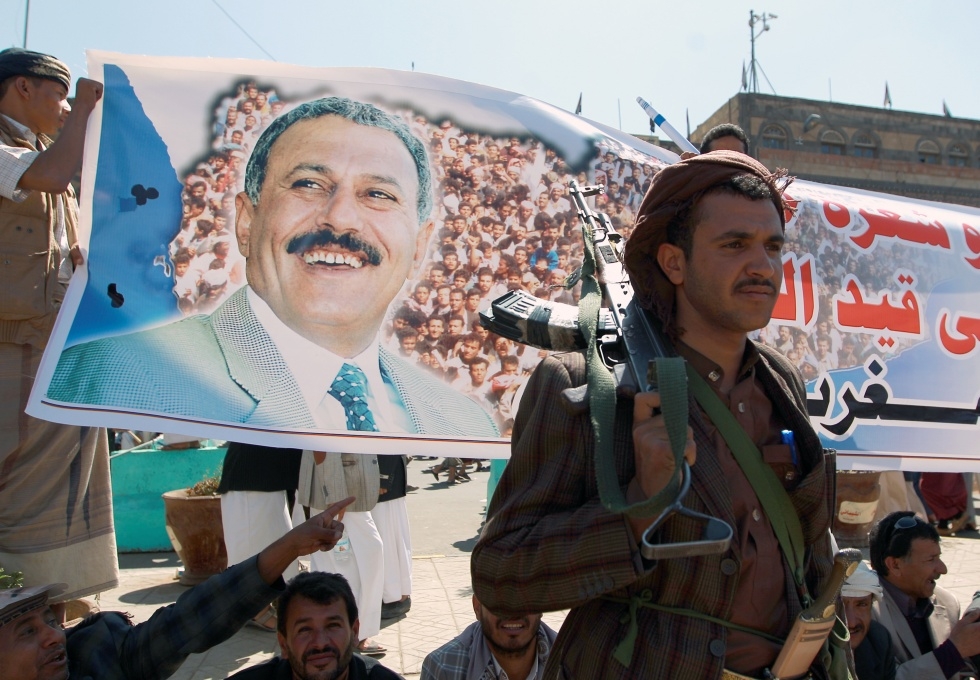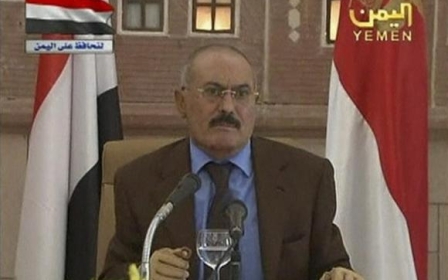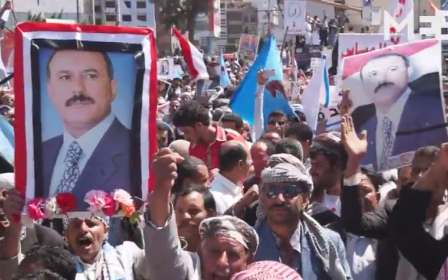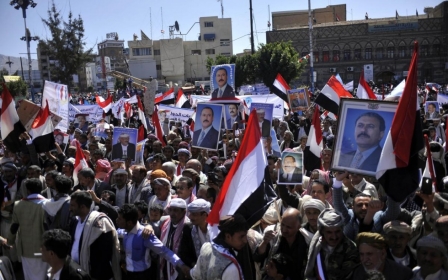Yemen ex-leader denies aiding Shiite militias, blames president

Former Yemeni president Ali Abdullah Saleh on Monday denied helping Shiite Houthi militias overrun Sanaa, accusing his successor of doing so to curb the growing influence of the Sunni Islah party, Yemen's Muslim Brotherhood.
Saleh, who has been slapped with UN Security Council and US sanctions for obstructing peace, said in a television interview he had played "no role" in supporting the unopposed seizure of the capital by the Houthis, known also as Ansarullah, in September.
"The president (Abdrabuh Mansur Hadi) is the one who brought Ansarullah into Sanaa to fight the Muslim Brotherhood," Saleh told Egyptian channel CBC Extra.
"Government institutions were handed over to Houthis," he said, arguing that Hadi wanted to curb the influence of the Islah party.
The Houthis had expanded their control out of their northern stronghold before seizing the capital. Since then, they have stretched to coastal areas and regions south of the Sanaa, where they met resistance from Sunni tribes and Al-Qaeda fighters.
Saleh said however that he was not willing to fight the Houthis, whose rebellion he fought for over a decade as president before he stepped down in February 2012 following nationwide protests.
"I am not against the Houthis because they have become a political force in the country," he said, urging their "incorporation in power."
The US Treasury blacklisted Saleh and two Huthi chiefs earlier this month, shortly after the UN Security Council imposed sanctions on the three men for allegedly threatening the UN-backed political transition in the impoverished country.
Saleh said the sanctions were the result of an "official request" by Hadi and called for them to be lifted.
He also said he had refused a "US and Arab offer" to leave Yemen for up to six months, saying it could mean "no return" for him.
Saleh described the Arab Spring uprisings as a "tool" aimed at weakening Arab economies and armies.
"The absence of democracy in some [Arab] countries has caused frustration among the youth," Saleh said. "But the revolutions have been merely a tool for weakening armies, spreading chaos and destroying economies."
Saleh described last year's military ouster of president Mohamed Morsi - the Islamist leader who won Egypt's first democratic presidential polls in 2012 - as an "abortion of a Zionist scheme" which he said aimed at pushing Islamists to power, with the support of the US.
"The Egyptian people's revolt against the Brotherhood was a victory for the whole region," Saleh said in reference to massive protests that broke out against Morsi's single-year rule.
Saleh said that while Egypt has been "lucky to receive generous support" by the Gulf following Morsi's ouster, Yemen has gone "back to square one" amid an ongoing stalemate between the central government and the Houthis.
Middle East Eye propose une couverture et une analyse indépendantes et incomparables du Moyen-Orient, de l’Afrique du Nord et d’autres régions du monde. Pour en savoir plus sur la reprise de ce contenu et les frais qui s’appliquent, veuillez remplir ce formulaire [en anglais]. Pour en savoir plus sur MEE, cliquez ici [en anglais].




